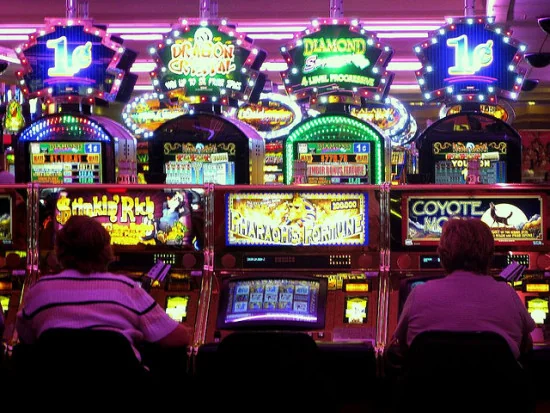Variable-Ratio Reinforcement Schedule
A variable-ratio reinforcement schedule is one of the most effective reinforcement strategies. Unlike fixed schedules, where rewards are predictable, the variable-ratio schedule dispenses rewards at unpredictable intervals. This unpredictability keeps the gambler engaged, as they never know when the next win might come.
Mechanics of Slot Machines
In slot machines, the variable-ratio schedule works as follows:
Unpredictability: Each spin of the slot machine is independent of the previous spins. The outcome of each spin is determined by a random number generator, which ensures that the results are random and not influenced by past outcomes. This randomness is crucial to the variable-ratio schedule because it means the gambler cannot predict when they will win.
High Engagement: Because players do not know when the next win will occur, they are motivated to keep playing. This constant anticipation of a potential win drives continuous play, often leading to long gambling sessions.
Resistance to Extinction: Behaviors that are reinforced on a variable-ratio schedule are highly resistant to extinction. This means that even after numerous losses, the occasional win will reinforce the behavior, encouraging the player to keep playing.
Psychological Impact
The variable-ratio reinforcement schedule exploits several psychological phenomena to maintain player engagement:
Intermittent Reinforcement: The random and infrequent nature of wins creates a powerful reinforcement schedule. Intermittent reinforcement has been shown to create stronger behavioral responses compared to continuous reinforcement, where rewards are predictable.
Gambler's Fallacy: Many gamblers fall prey to the gambler's fallacy, believing that a win is "due" after a series of losses. This incorrect belief can lead to extended play as players wait for the next big win.
Near Misses: Slot machines often display near-miss outcomes, where symbols almost align to create a win. These near misses can be just as motivating as actual wins, encouraging players to keep trying.
Real-World Implications
Consider the following scenarios that illustrate the effects of the variable-ratio reinforcement schedule on slot machine players:
Initial Wins and Subsequent Losses: A player might experience a significant win early in their session, creating excitement and reinforcing their behavior. Subsequent losses are then seen as temporary setbacks, with the player believing that another win is just around the corner.
Chasing Losses: Players often chase their losses, believing that continuing to play will eventually result in a win. This behavior is reinforced by the occasional small win, which encourages further play despite overall losses.
Ethical Considerations
The use of a variable-ratio reinforcement schedule in slot machines raises several ethical concerns:
Addiction: The unpredictable nature of the rewards can lead to gambling addiction. Players may develop compulsive behaviors, spending excessive amounts of time and money on slot machines.
Regulation: Many jurisdictions have implemented regulations to protect gamblers. These regulations may include limits on the amount of money that can be wagered, the speed of play, and the transparency of the odds of winning.
Responsible Gambling: Casinos and slot machine manufacturers are encouraged to promote responsible gambling practices. This includes providing resources for problem gamblers, setting limits on play, and encouraging breaks to prevent prolonged gambling sessions.
Related: Top 6 Slot Machines For Sale: A Guide to Choosing the Best for Fun at Casinos
Slot machines leverage the power of the variable-ratio reinforcement schedule to keep players engaged and motivated. The unpredictability of wins and the high rate of engagement make slot machines particularly compelling, but also pose significant risks for addiction and financial loss. Understanding this reinforcement schedule is crucial for both players and regulators to address the challenges associated with slot machine gambling. Responsible gambling practices and effective regulation are essential to mitigate the risks and ensure that gambling remains a form of entertainment rather than a source of harm.
AI + Sports Betting = Winning Formula. Did you know the sports betting landscape is undergoing a seismic shift, fueled by the extraordinary capabilities of AI? This cutting-edge technology is taking the industry by storm, offering an unprecedented competitive advantage to those who embrace it.
👉 Here is how you can win using the statistical data since 1999 ™

